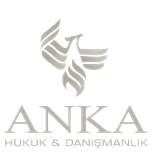Alcohol Anxiety: Can Drinking Cause Anxiety & Panic Attacks?
Aim for one glass of water for every alcoholic drink consumed. Electrolyte-rich beverages can also help replenish lost minerals and reduce anxiety symptoms. As individuals continue to use alcohol to cope with anxiety, they may develop Alcoholics Anonymous tolerance. This means they need to consume more alcohol to achieve the same calming effect. Increased tolerance can lead to a cycle of escalating alcohol consumption. Additionally, relying on alcohol to manage anxiety can prevent individuals from developing healthier coping strategies.
Anyone had panic attacks while drunk or sobering up shortly after drinking?
Drinking can also cause hangovers, which usually consist of symptoms like nausea, dizziness and headaches. But there can also be a feeling of anxiety and panic the next day. Dual diagnosis treatment for alcohol abuse and anxiety will work to address the symptoms and side effects of each disorder at the same time. After a high-stress event like a panic attack, your blood sugar drops as your body uses up glucose to fuel the fight-or-flight response.
What is the link between alcohol and panic attacks?
- It’s a natural human response and usually passes once the situation is over – for example around a job interview.
- Our bodies don’t go through the proper REM cycles, which is why you can pass out for 10 hours and wake up still feeling as if you haven’t slept a wink.
- However, anxiety can become abnormal if it interferes with your day-to-day activities.
The more you drink, the more at risk you are of having heightened anxiety while the alcohol is leaving your body. If a person experiences alcohol withdrawal symptoms, it can create a cycle of heightened anxiety and increased alcohol misuse. If you’ve been drinking alcohol to manage panic attacks, it’s time to think about different ways to deal with your emotions, as alcohol is an extremely unhealthy and dangerous way of doing so. If you’ve been drinking alcohol excessively, which has been leading to panic attacks, it’s highly recommended that you reach out for help to deal with your drinking as soon as possible. Getting professional support can be a positive step for you to take to regain control of your life. If you’re concerned about your panic attacks and feel that you’ve been using alcohol as a way to manage them, it’s important to understand the potential impact of this form of self-medication.
Severe panic attack while under the effect of alcohol, what to do?
These feelings can naturally increase overall feelings of anxiety in daily life. If you struggle with panic attacks and feelings of anxiety, it is important to understand how alcohol can affect your mental health and potentially make these symptoms worse. However, evidence shows that there is a direct link between alcohol and panic attacks.
It does so by binding panic attacks when drunk to GABA receptors in the brain—which helps your body to relax and your mind to feel calm. Alcohol is believed to mimic this effect by also binding to GABA receptors. That’s why drinking can help you feel relaxed in the short-term, especially in social situations. Additionally, alcohol affects neurotransmitter levels in the brain—the chemical messengers responsible for how we think, feel, and behave. Over time, these changes can make it harder for you to relax when you aren’t drinking and may lead to persistent worries, intrusive thoughts, and other anxiety symptoms.
- Lower brightness, use night mode, or—radical idea—look away from your phone entirely.
- If you’re drinking more than the UK low risk drinking guidelines (no more than 14 units a week for both men and women) try to cut down.
- This is why some people can wake up feeling embarrassed about things they said or did.
- Waking up after a night of heavy drinking can sometimes come with a fuzzy memory or uncertainty about what exactly happened when you were under the influence.
- When alcohol is a clear cause of your panic attacks, it’s important to abstain from drinking alcohol, Oeswein says.


